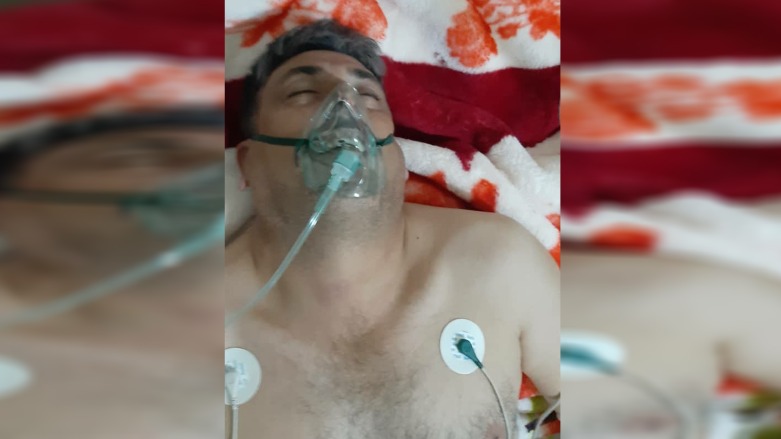Pro-regime group claims responsibility for attacks against Kurdish-led forces in Syria

ERBIL (Kurdistan 24) – The pro-Syrian regime group called “The Popular Resistance in the Eastern Region” on August 31 claimed responsibility for several attacks on the Kurdish-led Syrian Democratic Forces (SDF).
“If we are absent from you, know that the followers of SDF are lying in wait for us to shake the determination of the resisters, but our operations are continuing on all the geographic area that SDF occupies,” the group said in a statement on Facebook.
It then claimed to be behind five recent attacks against SDF fighters, including ones carried out in Tel Hamees and Markada of Syria’s Hasakah province as well as others in Raqqa and Deir al-Zor provinces. It described SDF fighters and those killed in the clashes as "dogs."
Deir al-Zor is Syria’s easternmost province.
The group also said it targeted Ali al-Huwaidi, the head of the Civil Council in Dhiban, who was shot by masked gunmen at the al-Attal roundabout between al-Basirah and al-Shehail on August 31 in Deir al-Zor province.
Basira was also the site of another recent incident in which an ethnically Arab SDF commander, known as Abu Hamam, was allegedly assassinated. No entity has claimed responsibility for this killing.
In the statement, the self-described “resistance” group referred to Huwaidi as a “misguided one,” and said the attack also targeted “one of the prostitutes of SDF.”
The so-called Islamic State has also claimed responsibility for the attack on Huwaidi through its propaganda outlet, Amaq.
The pro-regime group also warned senior tribesmen working with the SDF, including Sheikh Ibrahim al-Hifil from the Akidat tribe, who, on August 2, survived an attempt on his life in Deir al-Zor. Another figure, Sheikh Muttshar al-Hifil, died in the attack.
“Any statement issued by any person wearing the cloak of sheikhhood and does not support the demands of the people is empty content.”
It then pointedly referred to the survivor Sheikh, Ibrahim al-Hifil, saying: “you represent your puppet masters, and what you are doing is trying to numb the people who have had enough.”
Previously, other tribal members were also killed in similar circumstances. Such assassinations have led to widespread unrest in Deir al-Zor and calls for the perpetrators to be brought to justice.
Following the killing of Muttshar al-Hifil, pro-regime figures such as National Defense Forces (NDF) commander Firas Jeham threatened SDF forces and others who work with the “US occupation.”
The number of assassinations increased after media reports in late July that local Kurdish-led forces in northeastern Syria had made an agreement with an American company to modernize oilfields there, a move condemned by the Syrian government, Turkey, Iran, and Russia.
Read more: US company obtains waiver to develop oil fields in northeast Syria
Late last year, Syrian President Bashar al-Assad told Syrian TV a popular resistance would be formed against the American presence in Syria.
Read more: Fears US-Iran tensions could spill over to Syria after shells hit near US base
“We will not expect from your councils except the food of meat and addresses filled with meaningless idle talk,” the group added. “We are the ones who will change the equation, and we are the ones who will restore dignity.”
It then said, “We follow the example of Mr. President Bashar al-Assad, who said: we are fast but not rash. Therefore we work with all calmness so that our strikes are concentrated and considered.”
“Long live our Arab Ummah. Long live Assad’s Syria: one and united.”
Thomas McClure, a Syria-based researcher at the Rojava Information Center, told Kurdistan 24 that the Syrian regime recently increased pressure on the SDF and local Autonomous Administration of North and East Syria (AANES) after the so-called oil deal and spread disinformation in the local press.
“They try and turn communities against the SDF in the administration, and also seeking to spread chaos and instability, particularly in Arab regions,” he said.
According to McClure, the pro-regime tribal resistance group is still very shadowy. “It’s certain is that they have been claiming attacks. These attacks are carried out by regime agents, by ISIS, or by some combination of the two at different times.”
“What is sure is that the Syrian government, just like ISIS, does organize and attempts to spread instability in regions such as Deir al-Zour.”
McClure added that the SDF recently detained several individuals who he claims were seeking to carry out assassinations against tribal figures.
“The majority of the sleeper cell attacks are still carried out by ISIS, but the Syrian government is also always seeking through a variety of means to exert pressure on the administration.”
Editing by Khrush Najari
